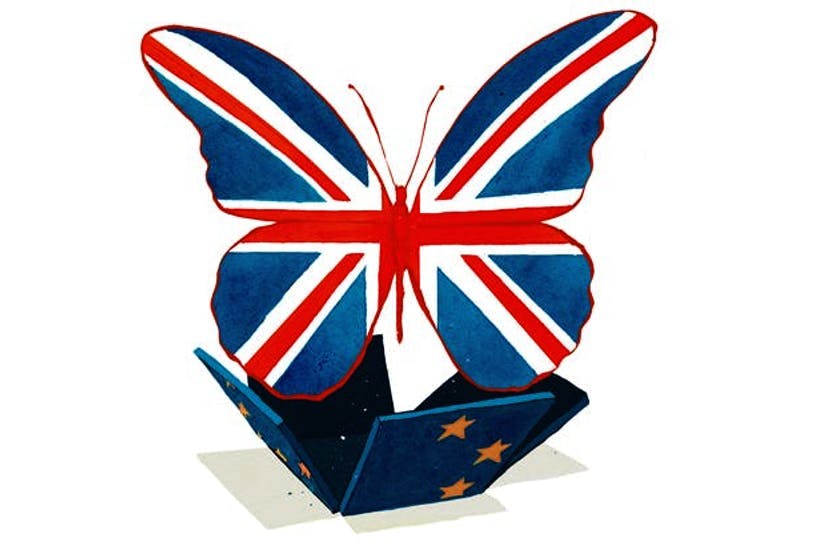A year ago today Britain awoke to a rather muted celebration – which seemed to consist largely of a bubble car driving around Parliament Square with a Union Jack in tow – ready to face up to a brave new future outside the EU. Who would have imagined then that the Observer would mark the first anniversary by running a leading article condemning the EU as ‘shambolic’ and instead praising Boris Johnson’s government for something Britain did all by itself?
Of course, the Observer’s judgement is only in respect to one thing: the EU’s joint vaccination procurement programme. Nevertheless, it is something rather important, on which a great number of people’s lives are dependent. Moreover, it is just about the first hard test of the different paths Britain and the EU have decided to take.
We are discovering just how protectionist the EU is, and how it uses petty rules and regulations as non-tariff barriers to trade.
The EU’s failure stems from its over-centralised way of doing things and its instinct for ever-wider expansion of its powers. Until Ursula von der Leyen, President of the European Commission, embarked on her EU-wide vaccine-buying programme (forbidding member states to start their own procurement programmes in the process) healthcare was something still considered to be the remit of individual countries. Italy, Germany and others had already started the process -but then stopped, at the EU’s request.
Had Britain been in the EU scheme, we would have delivered only 3 per cent of the population; as things stand it’s closer to 14 per cent. Technically, any member state is allowed to buy its own vaccine – but even Germany was discouraged by the EU from doing so in the name of EU harmony. If this first test is a sign of what is to come – as we begin to make our own trade deals and embark on reviewing the regulation we have inherited in our years in the EU – it bodes rather well for the future.
That said, it would be foolish to deny the deep problems Brexit has caused for some UK businesses. While the government achieved a zero-tariff trade deal that many doubted could be done (which happily frees us from being a rule-taker), there has been a nasty sting in the tail. This includes too many stories in recent weeks of businesses finding themselves hit with red tape and unexpected customs charges.
It isn’t just a few unprepared businesses which have been caught out, as government ministers sometimes suggest; the barriers to trade with EU member states are far higher and far more awkward than the words ‘free trade agreement’ ought to suggest. That UK fisheries businesses have found themselves with catches they are unable to export, thanks to bureaucracy, is especially damaging. The fishing industry was one of the biggest cheerleaders for Brexit. Many of those businesses are based in the north-east of Scotland; it would be devastating to the government if those areas form new allegiances, such as backing an independent Scotland.
But the bureaucracy into which UK exporting businesses find themselves sinking is EU-created bureaucracy. It is EU phytosanitary rules, for example, which prevent farmers exporting seed potatoes, and EU rules of origin which are irritating exporters and trapping them with unexpected tariffs. We are discovering – by being on the wrong end of it – just how protectionist the EU is, and how it uses petty rules and regulations as non-tariff barriers to trade. We might fall foul of this attitude when exporting to the EU, but we are no longer bound by it when trading with the rest of the world. It is up to the government now to show how, through deregulation, it can boost trade and wealth.
The government has played a blinder with its vaccine-buying programme. The EU vaccine disaster (and its behaviour over the last few days) had exposed the very problem. When Brussels takes on jobs that it can’t do well – out of an instinct for empire-building – then its member states suffer.This is, primarily, why Brits voted not to be a member state: to take back control. If we act rightly, the gulf between nimble and smart UK trade policy and that of the protectionist EU will grow wider in years to come.







Comments